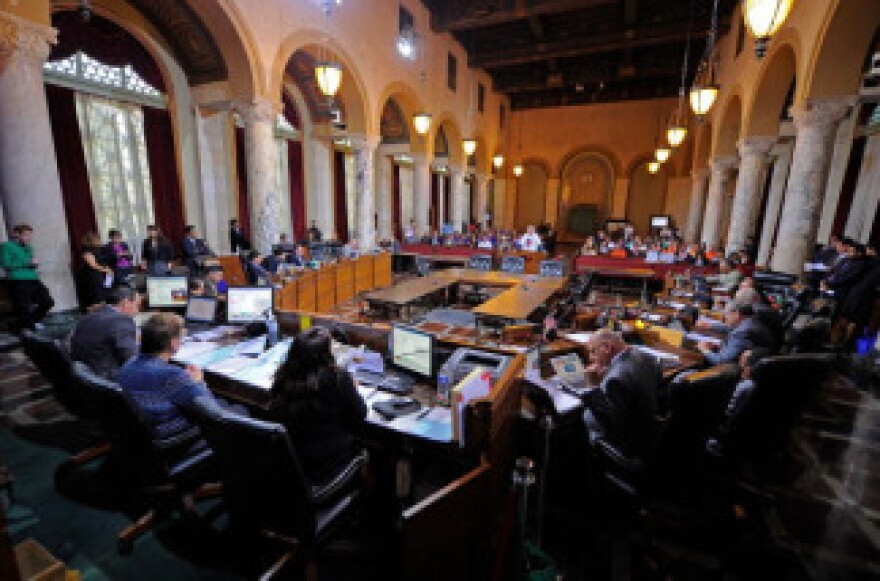This story is free to read because readers choose to support LAist. If you find value in independent local reporting, make a donation to power our newsroom today.
This archival content was originally written for and published on KPCC.org. Keep in mind that links and images may no longer work — and references may be outdated.
LA's neighborhood councils demand greater voice

In 1999, L.A. set up a network of neighborhood councils, largely in response to secession efforts in the San Fernando Valley, Hollywood and the Harbor area - places where residents long felt ignored by City Hall. But more than 15 years later, some local leaders still feel like they're being left out of the city’s decision-making process.
They're asking for more time to speak at City Hall meetings, citing the time they put into hashing out everything from potholes to redistricting. A widely-supported proposal by City Council President Herb Wesson would give representatives of the city's 96 neighborhood councils up to five minutes to speak in front of city panels. It goes before the council for a debate Wednesday.
Right now, neighborhood leaders typically get one minute to present their views, like other members of the public. But the neighborhood groups feel they should be treated differently because they’re chartered by the city, receive city funds, and have their own Department of Neighborhood Empowerment at City Hall.
“We are part of the city family and should be treated as such and literally have a seat at the table,” said Jill Banks Barad, a neighborhood leader from Sherman Oaks.
Banks Barad, who leads a regional alliance of 34 councils in the San Fernando Valley, said it’s frustrating to make a 90-minute round trip to downtown L.A. to speak for just a minute.
"It's a feeling of not being respected by the City Council," Banks Barad said.
Wesson's spokeswoman Vanessa Rodriguez, said that the council president picked up on dissatisfaction among neighborhood representatives after meeting with many around the city in recent months. Wesson proposed giving the groups more time in a motion he brought to the council in April.
"It made sense to him since the neighborhood councils are put into place by community elections. They're written into the city charter," Rodriguez said.
Grayce Liu, general manager of the Department of Neighborhood Empowerment, said that neighborhood councils are becoming increasingly outspoken and influential. She notes that more elected officials are coming out of the neighborhood councils, such as City Councilmember David Ryu and City Controller Ron Galperin.
"(Councils have) become, in the last few years, particularly, a new area to train new leaders for the city," Liu said.
She expects the number of neighborhood councils to grow as more communities get organized. Liu said each council has different priorities, ranging from emergency preparedness to public safety and land use.
“Los Angeles is so diverse and has so many different people, cultures and socioeconomic backgrounds,” Liu said. “You can’t say that one council on the west side is looking at the same issues as on the south side.”








